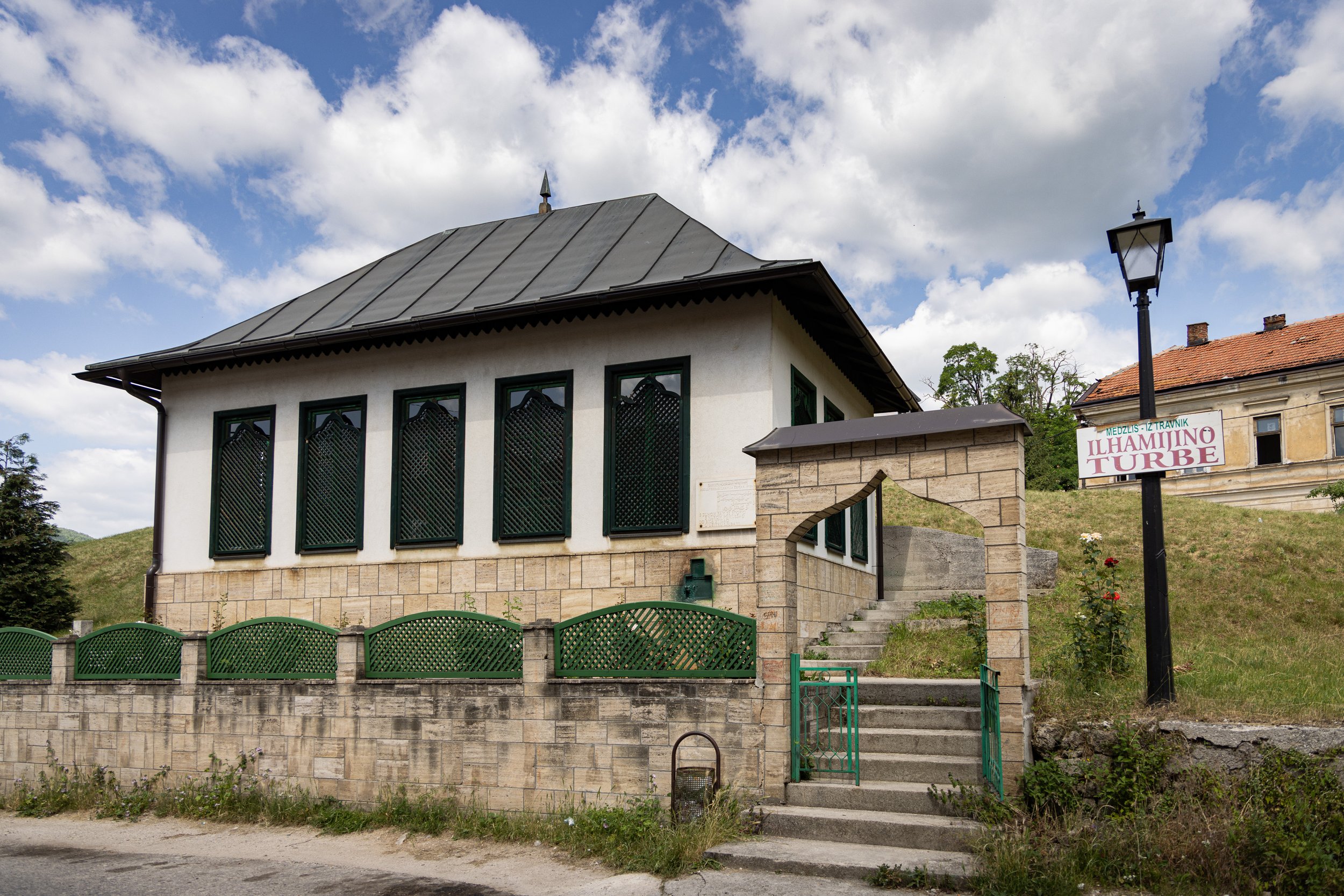
ILHAMIJA'S CONTRIBUTION TO THE CONTINUITY OF MUSLIM MULTICULTURALISM
Author: Meho Šljivo, MA, Riyasat of the Islamic Community in Bosnia and Herzegovina • Illustration: Ilhamija's turbe (grave) in Travnik; Ilhamija believed that cursing Christian shrines led to direct apostasy from Islam • Photos: Mirza Hasanefendić

Abdulvehab Ilhamija (1773 -1821) is a well-known Sufi scholar, poet and folk educator.
He was born in Žepče, and besides in his home town, he was educated in Tešanj and Fojnica. He wrote several popular handbooks and short works of religious-didactic character. Ilhamija's poetry has been preserved in the work Divan, the manuscript of which is held in Gazi Husrev-beg Library in Sarajevo. Ilhamija lived and worked in turbulent historical times of administrative-military reforms of the Ottoman Empire, at the turn of the 19th century.
At the time when he wrote his short didactic and instructive works and devout poems, the Ottoman Empire was already in a profound crisis. The essential causes of the crisis were not of religious but rather of economic and political nature. Bosnia was evidently weakened by frequent wars and epidemics, and social reality was marked by omnipresent anarchy, unlawfulness and corruption.
Inspired by tasawwuf as his own distinctive worldview, and gifted with a poetic subtle feeling for truth and justice, Ilhamija bravely fought ignorance and injustice. He severely criticized religious dignitaries and accused them of conservativism and fanatism.
Since Ilhamija, with his distinctive poetic inspiration, could not refrain from criticizing secular representatives of authorities, he was invited by Bosnian vizier of the time, governor Dželaluddin-pasha, and came to the Travnik fortress, where he was executed in 1821. The legend says that authorities “generously” offered Ilhamija to publicly denounce his rebellious poems and thus save his own life. When he refused to do so, he was strangled in the Travnik fortress.
Ilhamija's turbe (grave) is situated in the Potur neighborhood, in the west part of Travnik.
From the scarce biography of Abdulvehab Ilhamija and his short works, we learn that, besides poetic artistry and courage, Ilhamija showed extreme sensibility for members of other religions, their religious feelings and beliefs.
Indeed, in a text written in 1821, when discussing sinful words (elfazu-l-kufr) Ilhamija believed that cursing Christian shrines led to direct apostasy from Islam. In his Ilmihalu written in Bosnian, Ilhamija wrote that the Qur'an was the only completely preserved God's revelation and added that it should be prohibited to say that Christians' books were batil (invalid and rotten), since “there are God's speeches in them”. It is important to note that Ilhamija advocated building houses of worship of other religions, since he believed that their destruction or disrespect resulted in non-Muslims' animosity toward Islam and Muslims in general.
Ilhamija's theological and dogmatic benevolence toward Christians and their religious values and beliefs, as well as the well-nourished language which he used to write about non-Muslims gain importance because of the fact that in the first half of the 19th century, due to economic crises and weaknesses of the central Ottoman authorities Bosnia experienced the first manifestations of Muslims' radical attitude toward Christians. For example, when a small Orthodox community in Travnik got the permission to build a church in 1853, Muslim citizens required that it should be built outside the town. In the same year, Catholics were first denied the request to build a church in Sarajevo, although the request was later approved. Still, the fact remains that between 1820s and 1850s, many churches and rectories were built in various parts of Bosnia and Herzegovina. Historical sources provide testimonies of the time, which say that Catholic and Orthodox families went to picnics together with Muslims and Jews on slopes of a road that led to Ilidža. There was not a trace of religious hatred.
Ilhamija's views that Muslims are bound to speak with religious piety and subtle sensibility about Christian sacred books, and to respect non-Muslims' beliefs, symbols and houses of worship are a typical example of the continuity of classical Muslim multiculturalism.
The well-known Muslim scholar Abu Rayhan al-Biruni (973–1048) in his book Kitab al-Hind (A Book about India) insisted on the principle of respecting the other if we want to promote the idea of cultural pluralism. One should start from the principle, Al-Biruni wrote, that others speak about themselves and their beliefs and that “nobody, from the perspective of his own distinctive spirituality and religiosity has the right to make a judgement which pertains to all and any other form of spirituality as a form in which and through which the man learns about his limited human essence, which is dependent on God.”
References:
Silajdžić, Adnan (2006), Muslimani u traganju za identitetom, Sarajevo: Fakultet islamskih nauka.
Hadžijamaković, Muhamed (1991), Ilhamija, život i djelo, Sarajevo: El-Kalem.
Malcom, Noel (1995), Povijest Bosne, Zagreb-Sarajevo: Novi Liber, Erasmus, Dani.
